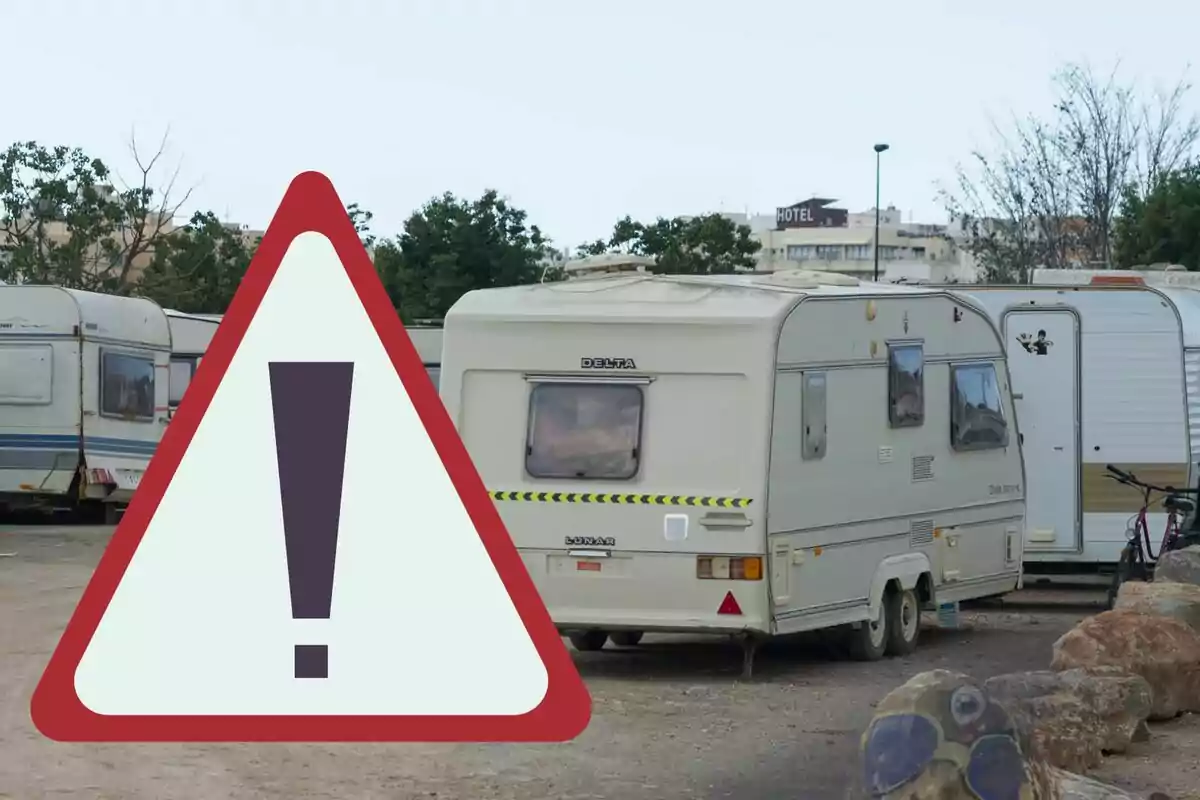The dream of living in a motorhome has captured the imagination of thousands of Americans, drawn by the idea of financial freedom and a somewhat simpler life. Faced with the cost of traditional housing and growing economic instability, RVs seem to be an affordable and comfortable option. However, what many don't know is that, in several states across the United States, this lifestyle is explicitly prohibited.
Even if you own the land, living in an RV isn't always legal. Zoning rules, safety codes, and health regulations make life on wheels difficult in many places. Although modern RVs are equipped with solar panels and bathrooms, they don't always meet the requirements of local laws, which leads many to encounter unexpected barriers.

Why is living in a motorhome prohibited?
Across the United States, zoning laws dictate that homes must meet certain requirements, such as being connected to public utilities and having a minimum area (superficie mínima). This excludes RVs, even the most well-equipped ones, from being considered permanent residences. In places like Hawaii, Indiana, Michigan, and Delaware, living in an RV as a permanent residence is directly prohibited, and doing so could result in hefty fines.
Although not all states have such strict restrictions, local regulations can vary drastically from one county to another. While some counties allow this lifestyle without many issues, others impose severe restrictions. This creates an uncertain landscape for those who want to embark on the adventure of living on wheels.
Where can you legally live in an RV?
If your dream is still to live in a motorhome, there are places where authorities are more permissive. States like Florida, Texas, Arizona, Colorado, and Oregon usually allow this lifestyle, as long as it doesn't cause inconveniences. However, it's essential to check local regulations before settling anywhere, since the rules can change over time.

Some adventurers choose to form private RV communities, registering them as campgrounds or RV parks. This strategy allows them to avoid legal penalties and enjoy a nomadic life with greater security. Creating a community of this kind can be a viable solution for those seeking to live in an RV legally and safely.
Is life on wheels the future of housing?
With the high costs of traditional housing, RVs offer a viable alternative for those looking for an economical and flexible way to live. Although the current housing system presents challenges, living in an RV remains an option for those who want to escape conventional life. If local regulations allow it, life on wheels can be the key to finding affordable and, in many cases, more satisfying housing.

